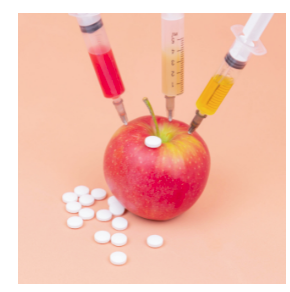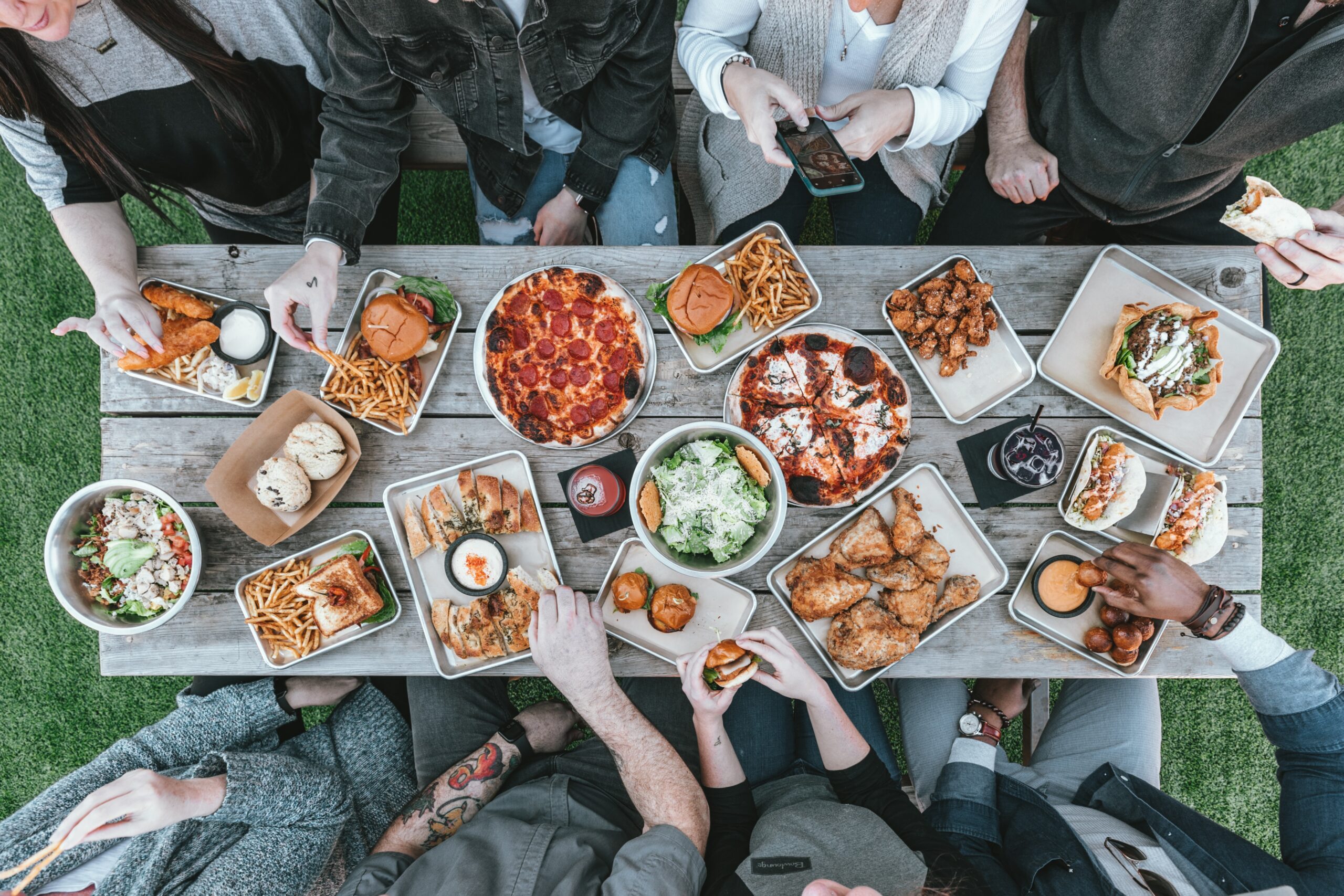This is a controversial topic and one that is complicated in nature. I often hear people say “I’m addicted to sugar! I’m addicted to carbs! I’m addicted to food!” Words matter. Defining matters. So let’s break it on down team.
Chemistry of food:
It’s true that the composition of food impacts whether we want more of it or less of it. Food manufacturers bank on this. If I was good at it, liked it and felt ethical about it, I would have gone into Food Science because there is mega money in chemically altering food to make it more palatable. Food manufactures call this the “bliss” point, and they are engineering more foods to elicit this reaction and stimulate our taste receptors. So in reality, it takes great awareness to not be compelled to eat many and often the foods available today. Unfortunately, this overwhelms our taste buds and brain chemistry to want more than our body needs (along with some foreign substances that our body has a hard time processing… then inflammation and hormone dysregulation ensue).

There’s also the increasing addition of artificial sweeteners, chemicals, food coloring, and preservatives in our foods that have brain altering effects. There’s been limited research on humans to safely condone our consumption of the endless combinations of food additives available today. Simply speaking, we are becoming a science experiment for the food industry by consuming ingredients that aren’t natural to our biology and weren’t in existence 50 years ago. And as the research develops, more and more experts agree that these chemicals and artificial foods have a great impact on our health and our compulsion to eat them.
Brain chemistry and taste buds:
When you eat sugary, fatty, and salty foods, the pleasure and reward center in your brain responds by releasing dopamine and other hormones. Dopamine = neurotransmitter that releases a ‘pleasure chemical’. When your brain releases dopamine in response to you eating certain foods, it makes you feel good and wants you to repeat that action. This is why dopamine plays a huge role in reinforcement, reward, cravings, and motivation. However, overeating highly palatable foods desensitizes dopamine. Meaning it takes more sugar, fatty, and salty foods to reach the same level of pleasure. Studies have shown that eating sugary, fatty, and salty foods can change the circuitry of the brain, making it difficult to resist eating those types of food.
Food addiction is not the same as being addicted to alcohol, drugs, tobacco, sex, media, or other external stimulants. You require food to survive; therefore, you cannot be a food addict. This is why I am, for the sake of this article, writing about this with the words “compulsive, fixated, and trigger foods.” Labeling yourself in the way of “food addict” can create an addiction consciousness and set you up for a lifetime of battling food and diverting life energy to managing your addiction, while also in some ways keeping you connected to it. While it can be okay to occasionally consume foods and treats that contain these substances, there’s a point where the habit enters into the territory of an unhealthy relationship and can cause risks to health and wellbeing.
Here are some signs that you may be overly dependent on specific foods:
-You are out of touch with your normal hunger signals, and consume the addictive foods at any time regardless of true appetite
-The addictive foods are causing serious unwanted symptoms and disease, and may be putting you at greater risk for diabetes
-You are using the compelling foods to regulate your mood and energy – for example, you need sugar to bring you up in the afternoon, and you need pasta or carbs to help you calm down at night
-You are in a cycle of self shaming over your food addiction because you believe it’s a willpower problem
-You prefer the addictive foods over life-giving, nutrient-dense food
If you feel that you have an out of control relationship with certain foods, I will always recommend first a mental health professional and a Registered Dietitian.
I want to also disclaim that this is when you are not in starvation mode or have been recently dieting off and on. This alone can trigger a much higher preoccupation and compulsion with food, mimicking food compulsive behaviors.
Breaking the habit chain:

Awareness
As with all fixations, acknowledgment is the first step. Recognizing that the food is impacting your behavior and health means you are waking up and getting ready to do the work. Be kind to yourself, and understand that this is not about willpower. Changing your compulsion requires a literal reprogramming of your neural pathways.
Investigation
Write down the history of your preoccupations and what events precipitated the behavior. Oftentimes we are confronted with a stressful life event, and we turn to sugar or comfort foods to reduce our stress or distract us from something painful. This is a totally normal survival response. However, once the stressful event has passed, our body chemistry has been altered, and now we have habits that willpower alone can’t overcome. Recognizing the root trigger is critical to lasting success.
Planning
While your food compulsion is an unwanted challenge, attempting to immediately stop using the food in question generally does not work. Because certain high palatable low micronutrient dense foods, especially sugar, create such strong physical dependencies, you can potentially experience some very distressing symptoms by cutting it off immediately. Again, your taste buds and physiology have been hijacked, so create some strategies and substitutions to help get you through the toughest part of the withdrawal. Expect to feel physically bad and even emotionally upset. You will probably mourn the loss. Those compelling trigger inducing foods have most likely been used to moderate your emotions, so taking them away is bound to be difficult. Be honest with yourself, and prepare for this. Try to make the change at a time when you can have more space for rest and reflection. Journal about your feelings. Consider getting yourself some extra support at this time as mentioned above.
 Substitution
Substitution
• Replace the high reward/low nutrition foods with high quality, fresh, and whole nutritious foods. Your taste buds have been altered, but soon you will develop a taste for fresh, real food.
• Replace many of the processed sugars and sweeteners with fresh fruits, juices, or smoothies.
• Slow down with food and take deep breaths before eating. This will place your body into a parasympathetic state, which is optimal for digestion.
• Add high quality proteins and fats to your diet to signal your body that you are being nourished. While fat can have a strong pull, the more overconsumption with fat is typically from dietary fat that is poor quality and highly refined. Instead, add essential fatty acids such as organic olive oil, coconut oil, nuts, seeds, and avocado. The increase of quality fat can create satiety and reduce your physical need for that low nutrient density food.
The exploration to halt the habit can be challenging, for sure. But going within to uncover the circumstances related to your food triggers will bring new self awareness that leads to true transformation. Be patient and kind to yourself through the process. The dependency didn’t develop overnight, and you deserve the time and space to overcome the compulsion and develop a whole new, nourishing relationship with food and body.
On your team,
Miriam Jirari MPH, RDN, CPT, Intuitive Eating Counselor
Studio SWEAT Dietitian
Resource: https://psychologyofeating.com/what-is-food-addiction/










Comments - 0